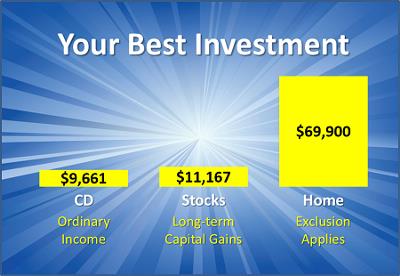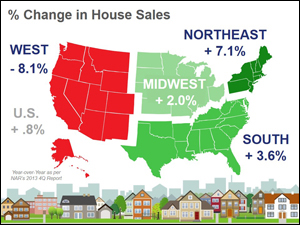Your Best Investment
According to a Federal Reserve report on Consumer Finances, homeowners' net worth is 36 times greater than that of renters. Building on that study, the National Association of REALTORS® believes that by the end of 2015, the factor will grow to 41 times greater.
|
|
There can be several factors that contribute to this disparity but an important one is the forced savings that is achieved due to an amortized mortgage. A portion of the payment goes to the reduction of the principal balance of the mortgage which increases equity in the home.
Appreciation is also a major contributor to homeowners’ equity. Homes, in most areas, have consistently increased in value over the long term and during the past four years have experienced solid growth. Many economists expect home prices to increase in the next five years.
Let’s look at a scenario where a qualified buyer considers three different options to see what their investment would be in five years: purchase a certificate of deposit, invest in the stock market or buy a home. The following assumptions are made: a $250,000 home with an $8,750 down payment with a 4.5% mortgage for 30 years and 3% annual appreciation; CD rate at 2% and a 5% return in the stock market.
The $8,750 would grow to $9,661 in the certificate of deposit, to $11,167 in the stock market and to $69,900 in equity with a home purchase. That is over a six times growth in the same period of time due to the amortization of the loan and the appreciation.
Check out Your Best Investment to compare possible differences in your price range.






